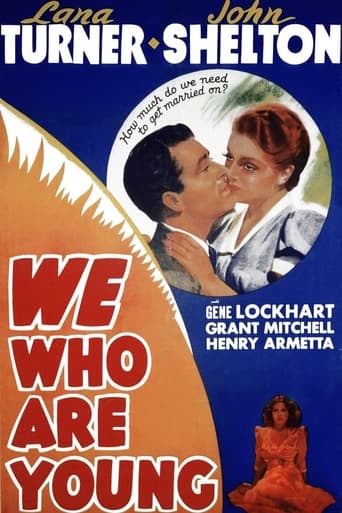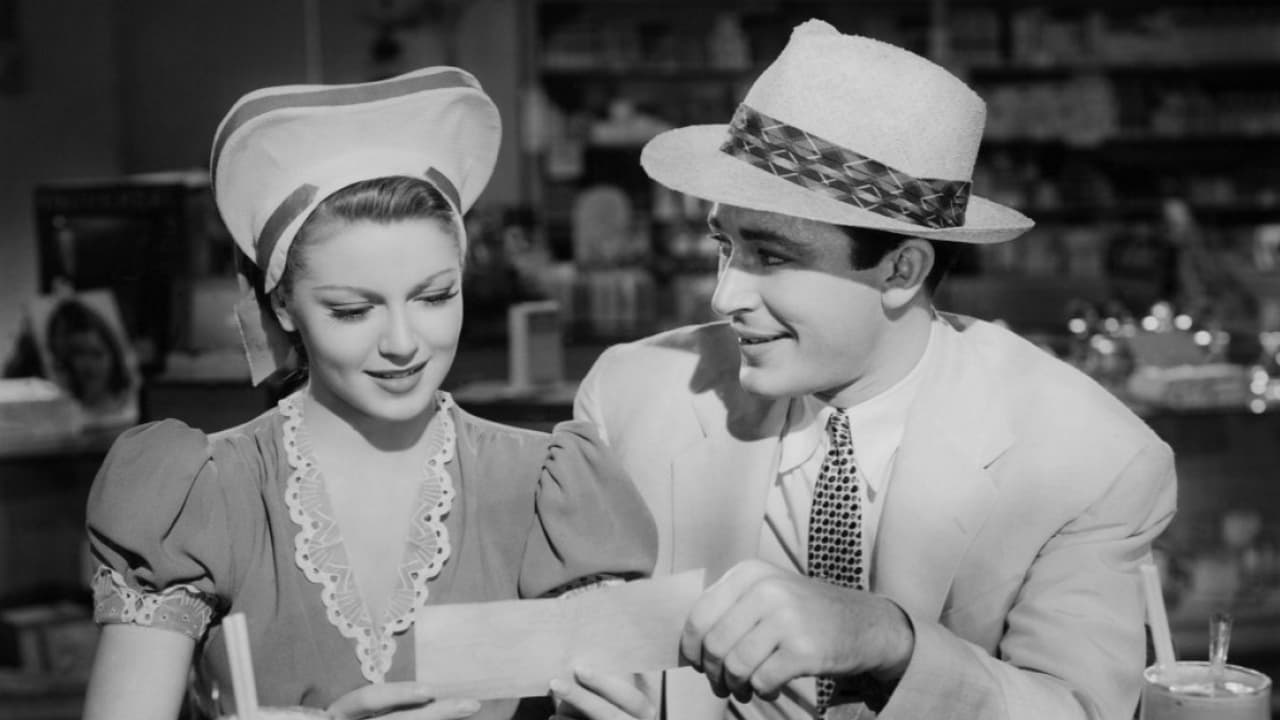Neil Doyle
It's easy to see that MGM was grooming LANA TURNER for stardom around this time. She has the pivotal role of a young wife whose husband has a hard time keeping his job under the strict rules of employer GENE LOCKHART. JOHN SHELTON is the husband who ends up desperately looking for work while his wife is expecting a baby and they have had to have all their furniture repossessed.Shelton wasn't really a bad actor but MGM dropped him not long after the film was completed. But Lana shines as the sweet and wholesome wife who stands by her man during hard times. Shelton gets to spout off some dialogue that comes from Dalton Trumbo's slant on the Depression-era tactics and rules of the workplace.Obviously, one of Trumbo's lesser scripts has been turned into a film that is more of a programmer than an A-film, despite a cast that includes Gene Lockhart, Grant Mitchell, Henry Armetta and Jonathan Hale. Prices mentioned for wages, rent and furniture are hilarious by today's standards.
TxMike
I saw this movie on TCM. Black and white, it is just under 90 minutes long. It's just a guess, but I think this movie was made to give young Lana Turner more exposure. She was a teenager during filming, either 18 or 19, and had a little voice with mannerisms similar to what we came to know as Marilyn Monroe a couple of decades later.Lana Turner is Marjorie 'Margy' White and she meets a nice young man, John Shelton as Bill Brooks. They fall in love and get married. Anxious to please his new wife, they buy new furniture for their small apartment. As a sign of the times, the total for several pieces of furniture was just over $200, which was a lot in 1940 and required Bill to get a short term loan.But this also leads to his troubles as Gene Lockhart, his very strict boss Carl B. Beamis, enforces very strict company rules. They don't think employees with debt can be good employees so Bill gets fired with 2 weeks' pay.So the drama heats up when Bill, unemployed and with no savings, finds out that Margy is pregnant.The dialog is often over-dramatic by today's standards, but maybe 70 years ago, just after the great depression and right before WW II, that is how things were. Just an interesting movie, but mostly for seeing the very young Lana Turner.
gvb0907
This is a pretty hackneyed melodrama, obviously influenced by "The Crowd" though far inferior. Turner and Shelton play financially strapped newlyweds facing the perils of the Depression. The various crises and the final resolution are predictable and all of the characters are crude stereotypes, especially Gene Lockhart's tyrannical Mr Beamis. Shelton's performance is weak (he was dropped by MGM after this film), but Turner rises above the material and shows she's a star in the making.
curtis martin
"We Who Are Young" is the odd kind of movie that David Lynch, the Cohen Brothers, and Ed Wood Jr. must have adored as young men. It's an odd, stilted bit of didactic goofiness about how tough it is to get ahead in a stifling capitalistic society. It follows a young couple, a pre-stardom Lana Turner and John Shelton, as they invariably make the wrong financial moves during the pre-WW II Depression era. They both work at the same office-an accounting firm run like a factory, lunch-period buzzers and all-until it is discovered that they are married. No married women are allowed by company policy, and she is fired (but not before receiving lots of stern advice on living within one's means by the robotic department manager). And this happens just after they buy over $200 worth of new furniture on his $25 a week salary, now their only income. Then she gets pregnant. Then HE gets fired (and has an absolutely histrionic girly-fit, yelling at his boss that `if this affects my wife or child in any way, I'll come back here and just kill you! I'll just kill you!'). And it goes on. What makes the film so special, besides the unintentionally hilarious dialogue, is the way the actors will periodically stare into space as we hear their poetic thoughts overdubbed-very, VERY Ed Wood (and not unlike the similarly awkward thought-balloon overdubbing in Lynch's version of `Dune'). But the gooney monologues are certainly not constrained to the characters' inner world; they also take the occasion to look straight into the camera and actually speak their thoughts at length, even though other characters may be right next to them. How to react to this kind of strangeness is left entirely up to you, the viewer, because the film is so ineptly made you can have no idea whether it's trying to be serious or comedic. I don't want to spoil it for you, but let's just say that if you're a fan of the Coen Brothers' `The Hudsucker Proxy', the less violent moments of Lynch films like `Blue Velvet', Wood's `Glen or Glenda' and the like, you will enjoy seeing their genesis in this nutty bit of 1940's agitprop-pop.Look for it on AMC and Turner Classic.


 AD
AD



